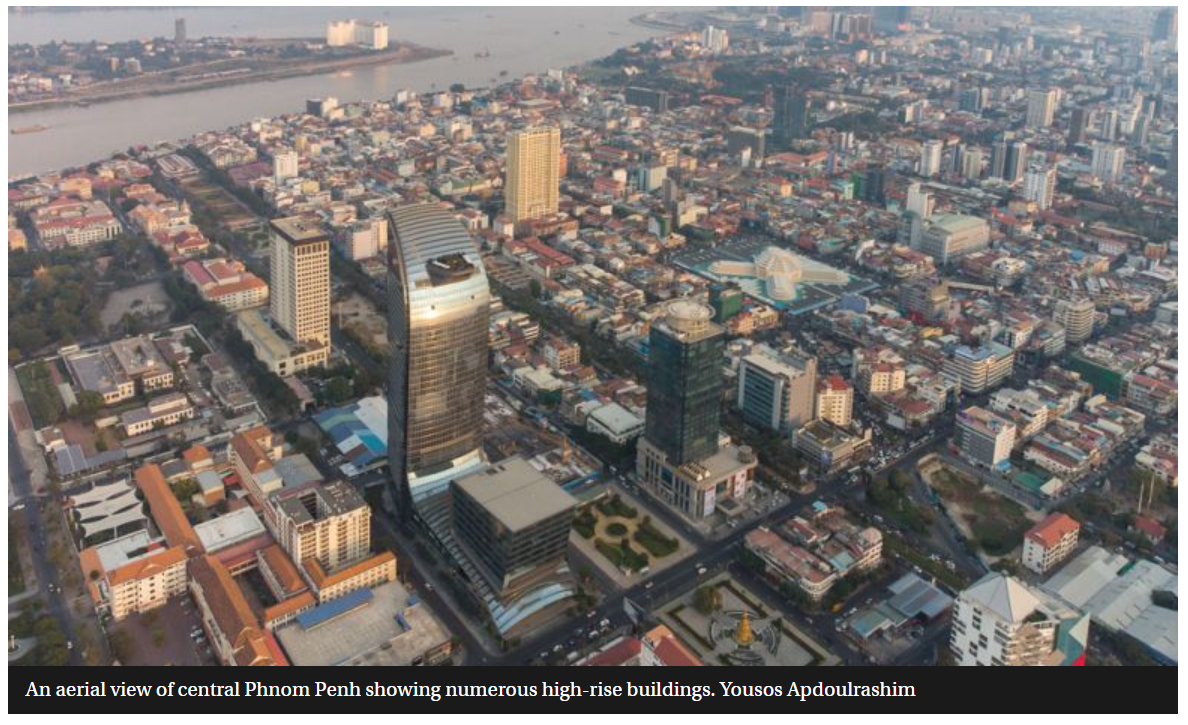Cambodia: World Bank lowers GDP growth forecast
The World Bank has revised its economic forecast for Cambodia down to 2.2 per cent this year, from a higher expectation of four per cent in April amid a rapid rise in new daily coronavirus infections and deaths, spurred by the more transmissible Delta variant.
The prediction and revision are nearly parallel to the Cambodian government’s 2021 gross domestic product (GDP) growth forecast of 2.5 per cent, which it downgraded from the 4.1 per cent announced at the beginning of the year.
In its latest economic update on September 28, World Bank said the revised figure comes despite strong export performance, supported by improved external demand conditions.
“Cambodia’s outlook remains highly uncertain and risks are tilted to the downside. Despite accelerated vaccination progress, risks of a protracted outbreak and further disruption remain high, given continued high numbers of infections and deaths,” the Washington-based multilateral lender said.
The World Bank has observed that the latest outbreak, which has lingered since the second quarter of 2021, has slowed recovery, especially of the service, construction and real estate sectors.
World Bank senior economist for Cambodia Ly Sodeth told an online press conference on September 28 that the vital travel and tourism sector, which provided an estimated two million jobs prior to Covid, has virtually collapsed.
“The collapse of jobs in the sector bears significant impact on Cambodia’s economic growth, and we’ve seen those job losses magnified by an increased number of migrant workers – especially from Thailand – returning home from abroad, adding to unemployment in Cambodia,” he said.
He also suggested a number of policies for the Kingdom to adopt to more efficiently exploit the bilateral Cambodia-China Free Trade Agreement, new investment law and other related instruments.
“Cambodia has to be ready, and address supply side bottlenecks, by reducing costs of doing business, logistics and energy, while eliminating rigidities in major employment-related regulations that prevent a robust recovery of the job market,” Sodeth said.
According to the World Bank’s High Frequency Phone Survey of Households, employment and income had not recovered to pre-pandemic levels, even before the recent Covid-19 resurgence.
About 69 per cent of households’ main earners were employed in March, 13 percentage points lower than the rate prior to the pandemic. Some 45 per cent of households continued to experience income losses in March.
“Disruptions to economic activities due to stringent measures to curb the outbreak have led to job losses or decreased working hours, in turn reducing household incomes. School closures have disrupted education since late March 2021, especially for poor students who have limited access to digital technologies.
“In addition, high credit growth and concentration of domestic credit in the construction and real estate sector remains a key risk to Cambodia’s financial stability,” the bank said.
According to the World Bank, agriculture remains resilient and goods exports have recovered, supported by improved external demand conditions. Other major growth drivers, namely tourism, construction and real estate continue to be hit hard by the pandemic. Investment, however, remains resilient.
“The slower economic recovery and the adoption of food consumption reduction as the main risk coping strategy will undermine the ability to recover from the pandemic, which could reverse several years of progress against poverty reduction in Cambodia,” the World Bank said.
The Asian Development Bank (ADB) on September 22 also revised down its 2021 GDP growth forecast for the Kingdom to 1.9 per cent from its April prediction of 4.0 per cent, but noted that growth is projected to accelerate to 5.5 per cent in 2022.
Source: https://www.phnompenhpost.com/business/world-bank-lowers-gdp-growth-forecast


 English
English




